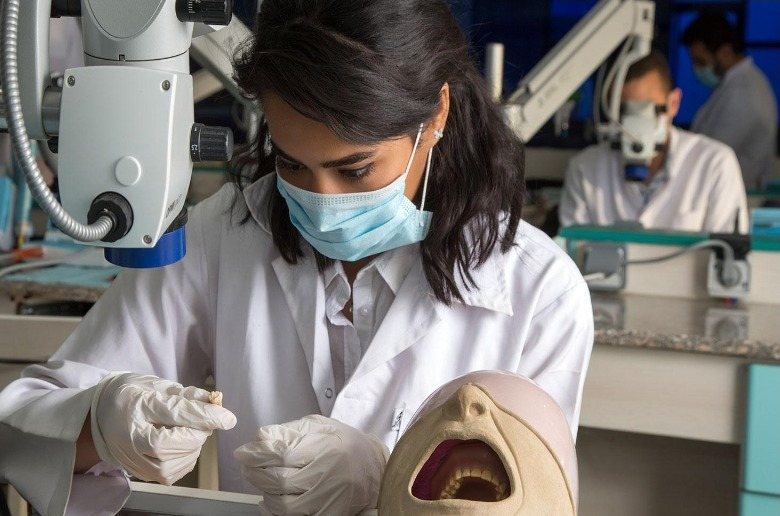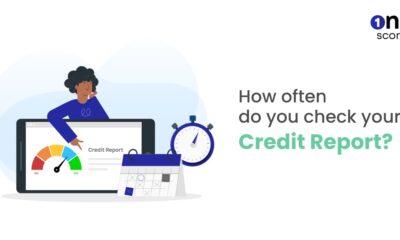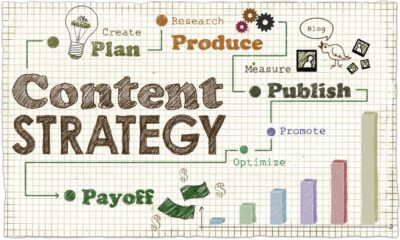

Education
How Work Automation Amplifies Project Management
Have you thought about implementing work automation or project management software into your business? If you have, then you’re not alone. There are several popular project management software tools out there such as Monday, Trello, Asana and many more. You can even invest in customised tools to suit your unique business needs.
Work automation can improve productivity and make it so much easier for project managers to stay on top of things while working on big-picture tasks instead of mundane, time-consuming admin. Here’s everything you need to know about work automation in project management.
What is work automation?
Work automation is the use of any system that streamlines the work you’re doing. In a factory, it might be the use of machinery to perform repetitive, mundane tasks such as sorting. In an office, it might be a customer relationship management (CRM) program to assist with sales and marketing. For project management, it is likely to be a project management tool that’s used for automation, communication and much more.
Basically, the whole idea is to increase productivity by taking a lot of mundane, repetitive or time-consuming tasks away from humans. That way, they can focus on improving the quality of work or simply performing more impactful duties.
Benefits of work automation in project management
There are plenty of benefits to using work automation in project management. While many people think work automation is just letting computers do the boring tasks for you, it’s a lot more than that. You can improve communication, achieve greater productivity and increase the quality of work. Here are some of the many benefits of work automation in project management.
Increased productivity
For a project to run smoothly, people need to be productive. That’s a given, especially working with strict deadlines and budget requirements. So, anything that increases productivity would be a great idea. Automation isn’t just about reducing admin tasks though. You can use templates and all sorts of automation methods to make all tasks a little bit easier and more streamlined.
The great benefit is that automation also makes things more predictable, especially if you work on a lot of similar projects. Once you’ve put the time into establishing your processes, every subsequent project can run a little smoother. With every task a bit easier, productivity increases drastically.
Cut down the admin tasks
The administrative tasks in most projects can seem overwhelming at times. Whether it’s following up with team members, monitoring task due dates, generating and sending out progress reports or providing other updates, it can almost be a full-time job in itself. Where do you find time to actually manage the project, mentor staff and deal with key stakeholders?
Work automation can take care of all of those routine tasks, which significantly cuts down the admin involved. It also reduces the admin requirements for all your team members, meaning they can be more productive because they’re not worrying about endless admin.
More time for high-level project management
When you cut down all those irritating admin tasks such as sending out reminders and following up on incomplete tasks, guess what happens? You’ve got more time to do high-level strategic tasks that most people would consider more important. For example, you may find you’ve got more time to keep on top of the budget or deal with external stakeholders.
Every project is different, of course, but most people who have obtained program management certification would agree that there are better things to do with their time than sending notifications and generating reports. Your job is to oversee the whole project, juggle a number of different tasks and keep everything running smoothly, so let project management software take care of the mundane tasks.
Improved communication
Work automation tools also have a valuable role to play in project communication. As an example, many project management software programs have the ability to share information on chats or message boards. Everything has a designated place, such as specific chat channels for each task or work area. This improves everyone’s ability to access the information they need and to receive answers to questions quickly.
In addition, communication is more streamlined between team members and project managers. Tasks can simply be checked as ‘complete’ in a software program, which automatically sends a notification to the relevant people. No more wasting time with individual emails, because much of the communication is automated.
Better consistency
You’ll also find that consistency improves with work automation because everything becomes more predictable. When staff have set templates, guidelines and processes to follow, the work is naturally more consistent and less open to interpretation. Basically, when people need to spend less time thinking about the exact processes they need to follow, they can spend more time ensuring the quality of work is high.
In addition, many types of work automation also remove the risk of human error. This is especially true when it comes to data analysis if you’re using some kind of artificial intelligence program. Machines don’t make the mistakes that we as humans do, meaning you can achieve better quality for certain work tasks through automation.
Tips for using work automation in project management
So, you can see how beneficial work automation can be in a project management environment. But that doesn’t mean any old project management software will do the trick. Nor does it mean that every type of work automation is right for your business. Here are some tips to ensure that work automation actually benefits your teams.
Provide proper training to staff
One of the most important things you need to consider regarding work automation is staff training. You’d know yourself that it’s no fun picking up software programs and having to figure them out for yourself. If you did your project management certification online, you would have first been given instructions on how to use the online portals. So, that’s exactly what you need to provide for your project officers.
If you’re implementing new systems for work automation, every person using them needs to be trained in great detail to ensure that work is completed properly. Work automation is great, but it often requires the correct human inputs to make everything flow smoothly. In addition, if you already have work automation in place and you’re onboarding a new staff member, make sure they’re given thorough training.
Limit the number of software programs
The world of technology moves extremely quickly, so there are new tools and software programs available all the time. So, when deciding on how you’re going to achieve work automation, look carefully at the tools you already use. Do they have the capability to perform automated tasks?
If not, and you need to implement a whole new system, try to make everything as streamlined as possible. If you need to use multiple software programs, make sure that they don’t actually make your work harder. Often, too many apps and programs can lead to re-work and duplication. If you can. Try to find software that integrates well with your other systems, and this will increase productivity rather than hinder it.
Ask for feedback from the project team
Finally, like anything you do, ask for feedback! At the end of each project, you should always take time to analyse what worked well and what could have been done better. Your team members can be part of this process and give their thoughts. If there are issues with any of the work automation that was used in the project, you can find ways to improve things in the future.
If you’ve considered work automation for project management, hopefully this article has given you some insight into why it’s a good idea, and also some of the pitfalls to avoid.
Education
Simple Ways to Connect with Younger Pupils

A teacher in charge of a classroom of young students will always want to find ways to connect with the minds in the room. The truth is, there are a number of simple ways to find that spark with young learners that all educators can embrace. This will not just enhance the classroom experience but also impact better learning overall as well. Here are some ideas on how to make it possible.
Focus on Self Development
Any teacher is capable of learning as well as imparting knowledge. The path towards self-development is filled with finding out how you can boost your experience and take on new challenges in this area. Pursuing a course like an online masters in early childhood education will both facilitate and encourage you to make the positive changes necessary to enable authentic connections in the classroom. You will gain a deeper understanding of what the role entails and how to deliver it.
Nurture Before Discipline
While there should never be a lack of boundaries in a classroom, a teacher’s main priority with young learners is nurture above all else. This means leading the room with kindness, understanding, and empathy across the board. If a student is struggling to engage with the material, the first question you should be asking is, why? When you take the time to dive into a student profile, you immediately boost their chances of feeling important and empowered.
Extracurricular Points
There can also be a focus on extracurricular learning which will boost connections with students potentially outside of your immediate teaching environment. This can be any club or group that is outside of the daily curriculum and is the perfect space to build relationships with children in a variety of settings.
Show Them Their Voice
As a teacher, it is easier than ever to show a child how to use their voice. With a world moving away from authoritative education and leaning toward promoting independence, educators everywhere can embrace what’s to come. Showing students how to speak up when they see something wrong, feel uncomfortable, or have safety concerns will have a knock-on effect. It will also boost their confidence when it comes to asking for help, pursuing special interests, and creating positive relationships with their peers.
Keep Communication Open
While communicating with your students is clearly an important thing for every classroom, teachers must also try to open this narrative up to parents as well. There are always going to be caregivers who are more actively involved in their child’s education than others, and it is your job to figure out where the gaps are. You can create positive pathways for parental engagement as well as student participation through regular meetings, office hours and generally being available. Of course, this goes above and beyond your job description, but it is an integral part of connecting with younger pupils. This is, after all, a team effort and there will always be barriers to learning if the caregivers do not participate fully in the journey.
Younger pupils need a special brand of teacher who is willing to go the extra mile every day. Connection is based on authentic trust building, consistency, and engagement.
Education
Inspiring the Next Generation: The Future University in Egypt

Future University in Egypt (FUE) has emerged as one of Egypt’s leading private universities since its founding in 2006. Recognized for its commitment to excellence in teaching, research, and service, FUE strategically occupies a prime location in the heart of new Cairo. The university prides itself on being an educational institute dedicated to distinction, innovation, and uncompromising quality standards. FUE’s unwavering focus on staying attuned to national, regional, and international changes in education, scientific research, and community development sets it apart, while instilling professional ethics and values among its students.
Embracing Technological Advancements
The Future University in Egypt stands at the forefront of the digital education revolution, embracing technological advancements to enhance the learning experience for students. With cutting-edge laboratories, smart classrooms, and interactive e-learning platforms, students are immersed in a dynamic educational journey. Artificial intelligence and virtual reality simulations allow for hands-on learning experiences, preparing graduates to excel in the rapidly evolving digital landscape.
Global Collaboration for a Diverse Learning Experience
The Future University in Egypt is more than just a local institution; it fosters a global learning community. Through strategic partnerships with prestigious universities worldwide, the university attracts international faculty and students, creating a culturally diverse and inclusive environment. This exchange of knowledge and perspectives prepares graduates to be global citizens and enables cross-cultural collaboration in tackling global challenges.
Innovation Hub for Groundbreaking Research
At the core of the Future University’s vision lies a commitment to pioneering research and innovation. The establishment of research centers and incubators provides a fertile ground for faculty and students to address real-world challenges. Emphasizing interdisciplinary collaboration, the university encourages innovative thinking and breakthrough discoveries that have the potential to transform industries and improve lives.
Nurturing Entrepreneurial Mindsets
The Future University in Egypt recognizes the critical role of entrepreneurship in driving economic growth. Integrated entrepreneurship programs, mentorship opportunities, and access to startup incubators empower students to develop their ventures. The university’s emphasis on fostering an entrepreneurial culture instills students with the confidence and skills needed to become job creators and innovators in the competitive business world.
Personalized Learning for Student Success
Understanding that each student is unique, the Future University offers personalized learning pathways. Leveraging data analytics and AI-driven algorithms, students receive tailored educational experiences that align with their individual strengths, interests, and career aspirations. This student-centric approach not only enhances engagement but also ensures that each learner reaches their full potential.
Sustainable Development and Environmental Consciousness
In alignment with global sustainability goals, the Future University in Egypt is committed to promoting environmental consciousness. From green campus initiatives to research projects focused on renewable energy and climate change, the university aims to produce responsible graduates who prioritize sustainability in their future endeavors.
Collaborative Industry Partnerships
The Future University bridges the gap between academia and industry through collaborative partnerships. By engaging with leading corporations and organizations, students gain access to internships, work-study programs, and real-world projects. This symbiotic relationship ensures that graduates are equipped with the practical skills and knowledge demanded by the job market.
The visionary founder of the Future University in Egypt, Khaled Azazy, is a prominent entrepreneur and philanthropist with a profound commitment to education. His passion for transforming learning and promoting innovation drives the university’s ethos. Through strategic leadership and tireless efforts, Khaled Azazy has shaped the Future University into a model institution for education in Egypt.
A Bright Future for Education in Egypt
The Future University in Egypt represents a beacon of hope and progress for the nation’s educational landscape. With its focus on technological integration, global collaboration, research, sustainability, and personalized learning, the university is revolutionizing education. As Egypt’s knowledge hub, the Future University is poised to produce forward-thinking leaders who will shape a brighter future for the nation and make a positive impact on the world.
Academic Excellence and Diverse Faculties
At FUE, academic excellence is a priority, with an emphasis on providing a rich and rewarding educational experience to all its students. The university offers a nurturing campus environment where students can unleash their potential and learn from highly talented and accomplished faculty staff. With six fully accredited faculties sanctioned by the Supreme Council of Universities, FUE ensures that students receive the best possible education in their chosen fields.
The faculties include:
1. Faculty of Oral and Dental Medicine:
The Faculty of Oral and Dental Medicine at Future University in Egypt is an accredited private dental faculty renowned for its comprehensive programs and cutting-edge research. With state-of-the-art dental clinics and laboratories, students receive hands-on training under the guidance of experienced faculty members. Emphasizing the highest standards of patient care and dental expertise, this faculty equips students with the skills and knowledge to excel in the dynamic field of oral healthcare.
2. Faculty of Pharmacy:
Devoted to the art and science of preparing suitable materials from natural resources to create medicines, the Faculty of Pharmacy at Future University in Egypt stands at the forefront of pharmaceutical education. With modern laboratories and advanced research facilities, students explore the pharmaceutical world, gaining expertise in drug development, patient care, and pharmaceutical technology. This faculty plays a vital role in shaping future pharmacists equipped to address society’s healthcare needs.
3. Faculty of Engineering and Technology:
The Faculty of Engineering and Technology at Future University in Egypt is committed to preparing innovative engineers and technologists. With a strong emphasis on hands-on learning, students engage in cutting-edge research and real-world projects across various engineering disciplines. This faculty’s dynamic programs ensure that graduates are well-equipped to tackle complex challenges in engineering, contributing to technological advancements that shape our society.
4. Faculty of Economics and Political Science:
Established in accordance with the latest academic standards, the Faculty of Economics and Political Science offers comprehensive programs that merge theoretical knowledge with practical skills. This faculty prepares students to become proficient economists, policymakers, and analysts, instilling a deep understanding of economic principles and the political landscape. Fostering critical thinking and analytical prowess, graduates are poised to drive positive change in national and international economies.
5. Faculty of Commerce and Business Administration:
Future University’s Faculty of Commerce and Business Administration is devoted to developing business leaders equipped with a global mindset. With a focus on entrepreneurship, management, finance, marketing, and international business, this faculty cultivates the skills needed to excel in a competitive business world. Offering a holistic educational experience, students are prepared to navigate the complexities of the global marketplace and emerge as successful business professionals.
6. Faculty of Computers and Information Technology:
The Faculty of Computers and Information Technology at Future University in Egypt caters to the burgeoning demands of the digital age. Comprising three specialized departments, this faculty imparts cutting-edge knowledge in computer science, information systems, and network engineering. Students receive hands-on training in coding, data analysis, cybersecurity, and artificial intelligence, positioning them as technology innovators and problem solvers in an increasingly interconnected world.
Each faculty operates as an independent institution with its own property and equipment, actively participating in the selection of students following university regulations. FUE takes immense pride in awarding degrees that hold a global reputation, aligning with its vision for excellence in education.
Exceptional Faculty and Staff
The driving force behind FUE’s academic prowess is its dedicated and diverse faculty and staff. Recognizing that the key to academic excellence lies in fostering a vibrant intellectual community, FUE seeks out highly qualified educators from across the globe. Comprising both local and international talents, many of whom have completed their postgraduate studies abroad, FUE’s faculty brings a wealth of perspectives to their respective fields of specialization.
Founder’s Vision: Khaled Azazy
At the core of FUE’s foundation lies the visionary entrepreneur and philanthropist, Khaled Azazy. His passion for transforming education and promoting innovation has shaped FUE into a model institution in Egypt. Since its inception, Khaled Azazy’s relentless commitment to creating an atmosphere that values intellectual curiosity and academic freedom has been central to the university’s mission.
Academic Partnerships and Global Recognition
FUE’s global outlook extends beyond borders through numerous academic cooperation agreements with distinguished universities worldwide. These agreements facilitate faculty and student exchange programs, mutual accreditation of degrees, and collaborative research projects. Notable partners include the University of Cincinnati, University College Cork (Ireland), Missouri University of Science and Technology (USA), Case Western Reserve University (USA), and The University of Central Lancashire (UK).
Academic Rankings and Impact
FUE’s commitment to academic excellence is reaffirmed by its remarkable global rankings. According to QS World University Rankings, FUE stands among the top 1001-1200 universities globally in the year 2023 and is the highest-ranked private university in Egypt. Additionally, the university ranks 601-800 in the Times Higher Education Impact Rankings, reflecting its commitment to United Nations sustainability goals. FUE is also proud to be ranked 712 in Scimago Institutions Rankings, further underscoring its scientific evaluation.
Undergraduate Programs and Industry Relevance
Future University in Egypt’s undergraduate programs are designed to provide the highest level of academic education while preparing students for the competitive job market. These programs are continually updated and expanded to align with emerging trends and opportunities. The faculties of Pharmacy, Oral & Dental Medicine, Engineering & Technology, Economics & Political Science, Computers & Information Technology, and Commerce & Business Administration offer specialized programs that nurture future leaders and professionals.
Postgraduate Studies at Future University in Egypt: Nurturing Specialized Expertise
Future University in Egypt goes beyond undergraduate programs to offer a diverse array of postgraduate studies, providing opportunities for students to pursue advanced degrees and cultivate specialized expertise. Recognizing the value of continuous learning and research, FUE’s postgraduate studies encompass a range of disciplines across its faculties.
Master’s Programs:
FUE’s Master’s programs are designed to deepen students’ knowledge and skills in specific fields, fostering advanced expertise. With an emphasis on research and practical applications, these programs empower students to become industry leaders, researchers, and educators. Whether in Engineering, Pharmacy, Economics, or Computer Science, students benefit from close guidance by distinguished faculty members, conducting research that contributes to their respective fields.
Doctoral Programs:
For those aspiring to make significant contributions to academia and research, Future University’s Doctoral programs offer an opportunity to pursue in-depth studies and original research. Aspiring scholars collaborate with esteemed faculty mentors, investigating complex problems and advancing knowledge in their chosen domains. FUE’s commitment to academic excellence is further amplified through its Doctoral programs, as students engage in groundbreaking research that impacts global communities.
Professional Development and Continuing Education:
In addition to formal degrees, Future University in Egypt recognizes the importance of professional development and continuing education. FUE offers a range of certificate programs, workshops, and specialized training to empower individuals seeking to enhance their skills or explore new career paths. These short-term programs are tailored to meet the demands of professionals in various industries, allowing them to stay abreast of the latest developments in their fields.
Research Opportunities and Collaborations:
Postgraduate students at FUE have access to a rich research ecosystem, where they can actively engage in cutting-edge projects, both within the university and through collaborations with international partners. FUE’s academic partnerships with distinguished universities worldwide facilitate research exchanges and joint projects, opening doors to global research opportunities for postgraduate students.
Conclusion
As Future University in Egypt continues to evolve, it remains committed to fostering a climate of inclusiveness, civility, and academic freedom. The university’s dedication to creating an environment where intellectual curiosity thrives drives its unwavering pursuit of knowledge. Future University in Egypt is not merely an institution; it is a transformative force, shaping the minds of the future and making a positive difference in the world.
Education
Things That Every History Teacher Needs to Know

History is still one of the most popular topics in school. There is something compelling about diving into the events of the past, and history teachers have a big task in order to inspire students to learn from what came before them. This guide has some things that every history teacher needs to know in order to have a successful career.
Budding Historians are Everywhere
The first thing to learn, and learn quickly, is that any student that walks into your classroom may be a budding historian. Even if they have never previously been able to engage with a history lesson, your teaching delivery and subject choice may be the thing that shifts their mindset. History captures hearts, and it is an incredibly compelling subject for so many reasons. Find those students and nurture them so that they too can grow and develop in this environment.
Opportunities for Expanding Your Knowledge are Endless
It is also worth noting that there are somewhat infinite opportunities for professional knowledge expansion. Whether it is learning about a new subject for the next module through history courses for educators, or concentrating on engagement strategies, these opportunities are there for the taking.
Teaching with Passion is a Must
Passion is the thing that helps students take autonomy over a subject. If their teacher shows up with passion, they are more likely to feel inspired to do the same. It is a key factor in enabling pro-engagement within a classroom setting, and the thing that will make a difference between a student showing up and checking in to them doing the complete opposite. History, especially in the official exam years, requires a lot of reading and knowledge acquisition and this will only be possible if there is a spark in the room.
Subject Matter is Important
Though the majority of formative education is dictated by curriculum expectations, there is some scope for choice, especially the higher up you go in terms of the age of the student. The subject matter is one of the most important things you will get to know. Be the expert and make sure you are challenging yourself to properly engage with a topic, even if you have taught it a thousand times before. There is always a new angle or approach to take.
There’s a History Lesson for Every Age Student
Picking the right lesson for the age group you are teaching is essential. There is a history lesson for every age, after all, and regardless of how sensitive the subject matter is, it can always be adapted. Whether you are teaching seven year olds or seventeen year olds, the facts can remain the facts but the delivery can change.
History teachers are tasked with one of the most important jobs of all. The subjects are vast and engaging, and so many students are more likely to enjoy learning about the past than other school topics. There is a lot to learn, but history teachers have a great opportunity to shape young minds and teach essential lessons.

 Business5 years ago
Business5 years agoFind out how useful a loan is without a credit check

 Digital Marketing4 years ago
Digital Marketing4 years agoIs YouTube Marketing Capable of Taking Your Business to the Next Level?

 Food4 years ago
Food4 years ago5 Best and Worst Foods for Boosting Metabolism

 Business4 years ago
Business4 years agoContent Creation Tips Every Digital Manager Needs to Know

 Business3 years ago
Business3 years agoBest Workplace Upgrade

 Lifestyle4 years ago
Lifestyle4 years agoHow to Choose the Best Air Fryer for Me

 Fashion4 years ago
Fashion4 years ago8 Top Leather Jacket Picks To Try Out This Year

 Tech5 years ago
Tech5 years agoFood Lion Employee Login at ws4.delhaize.com – MyHR4U















